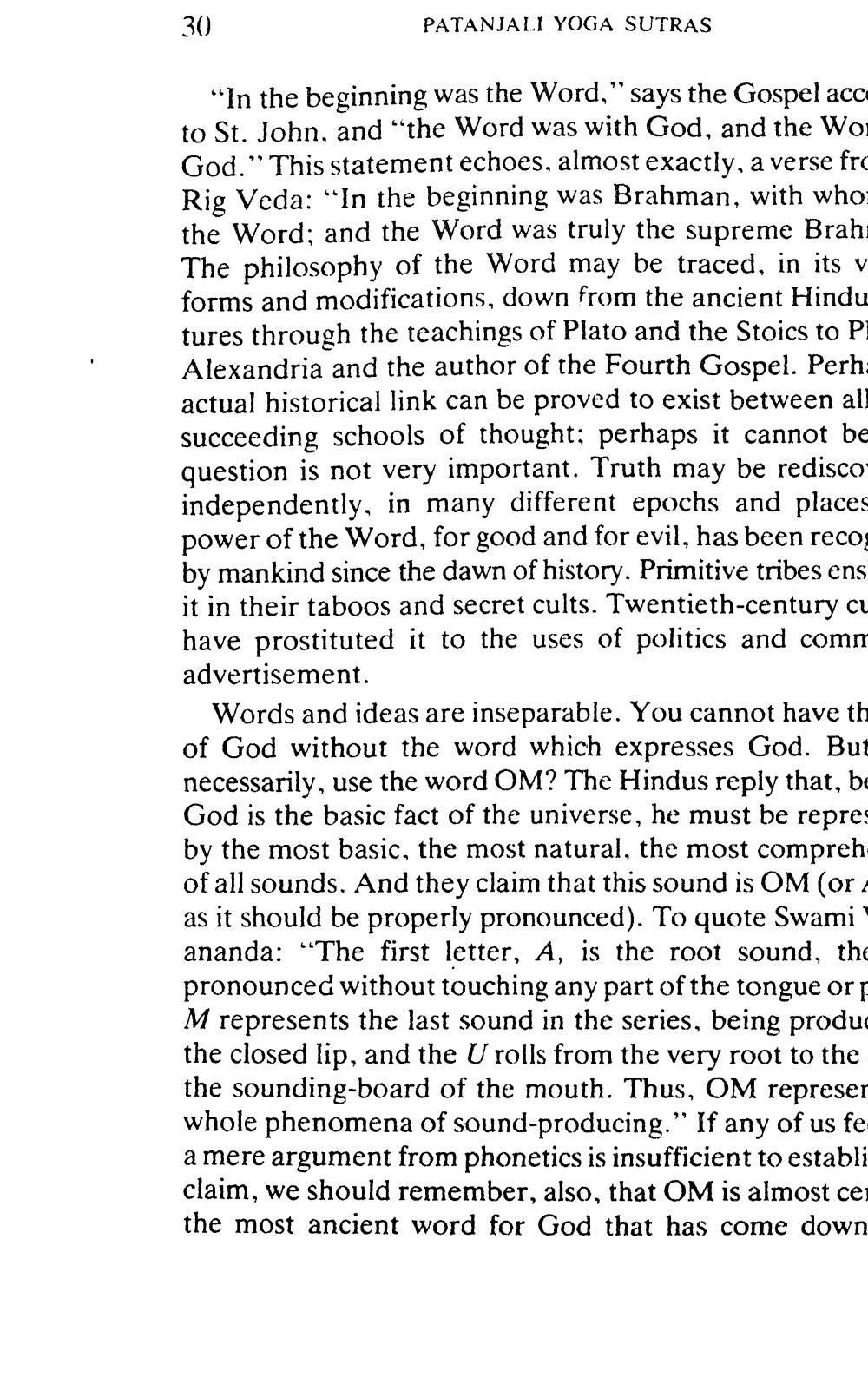________________
30
PATANJALI YOGA SUTRAS
"In the beginning was the Word," says the Gospel acce to St. John, and the Word was with God, and the Wor God." This statement echoes, almost exactly, a verse fro Rig Veda: “In the beginning was Brahman, with who: the Word; and the Word was truly the supreme Brahi The philosophy of the Word may be traced, in its v forms and modifications, down from the ancient Hindu tures through the teachings of Plato and the Stoics to PI Alexandria and the author of the Fourth Gospel. Perh: actual historical link can be proved to exist between all succeeding schools of thought; perhaps it cannot be question is not very important. Truth may be rediscoindependently, in many different epochs and places power of the Word, for good and for evil, has been recog by mankind since the dawn of history. Primitive tribes ens it in their taboos and secret cults. Twentieth-century cu have prostituted it to the uses of politics and comm advertisement.
Words and ideas are inseparable. You cannot have th of God without the word which expresses God. But necessarily, use the word OM? The Hindus reply that, be God is the basic fact of the universe, he must be repres by the most basic, the most natural, the most compreh of all sounds. And they claim that this sound is OM (or as it should be properly pronounced). To quote Swami ananda: “The first letter, A, is the root sound, the pronounced without touching any part of the tongue orp M represents the last sound in the series, being produc the closed lip, and the U rolls from the very root to the the sounding-board of the mouth. Thus, OM represer whole phenomena of sound-producing." If any of us fe a mere argument from phonetics is insufficient to establi claim, we should remember, also, that OM is almost ce the most ancient word for God that has come down




